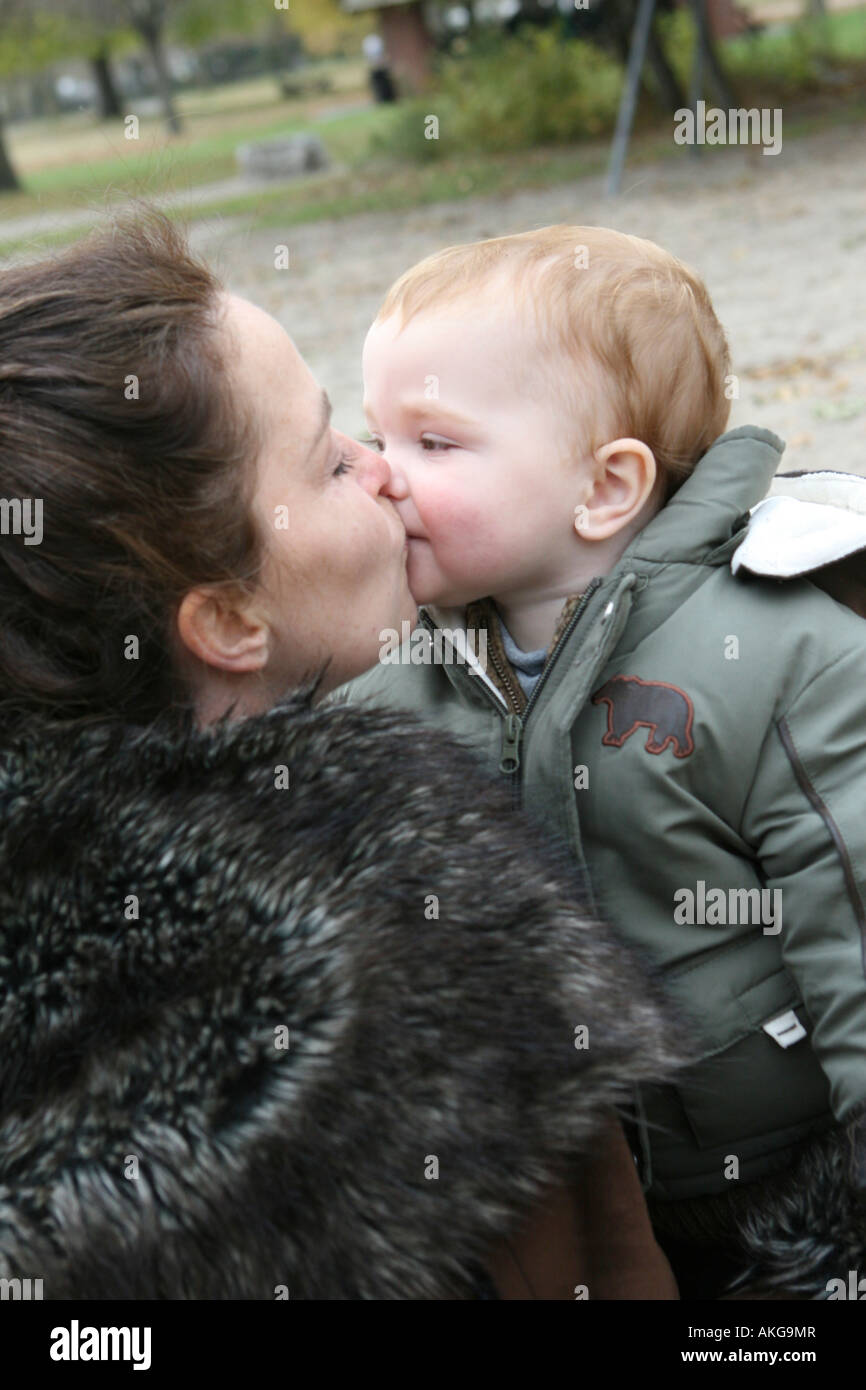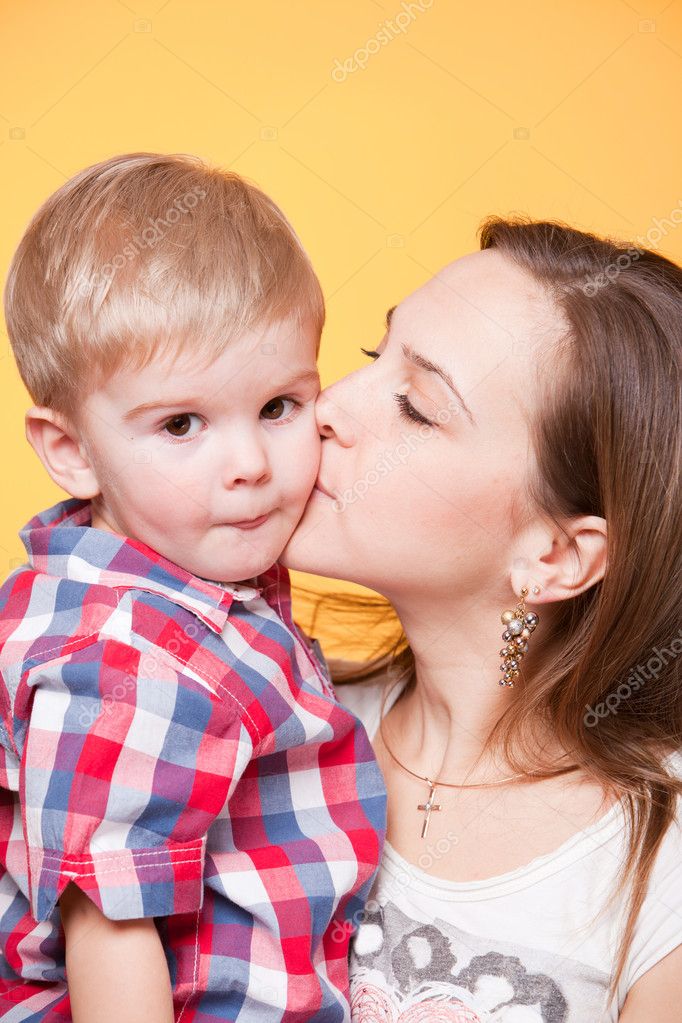Mom kissing son is a timeless image that evokes deep emotions and speaks to the universal bond between a mother and her child. This simple yet profound act carries layers of meaning, transcending cultural and generational boundaries. It represents love, protection, nurturing, and unconditional support—a foundation that shapes the emotional development of children.
In today’s fast-paced world, understanding the significance of such intimate moments becomes even more crucial. For mothers, kissing their sons is more than just an expression of affection; it’s a gesture that fosters emotional security and trust. This article delves into the various dimensions of this heartwarming connection, exploring its psychological, cultural, and social implications.
From scientific studies to personal anecdotes, we’ll uncover why mom kissing son remains a powerful symbol of love and family dynamics. Whether you’re a parent, educator, or simply curious about human relationships, this comprehensive guide will provide valuable insights into this cherished moment.
Read also:Ale And Witch Unveiling The Enigmatic World Of Craft Brewing And Magical Traditions
Table of Contents
- Biography and Background
- Psychological Impact of Mom Kissing Son
- Cultural Perspectives on Mom-Son Affection
- Parenting Styles and Expressions of Affection
- Age-Appropriate Affection in Parenting
- Scientific Studies on Parental Affection
- Emotional Benefits for Children
- Societal Challenges and Misconceptions
- Tips for Parents: Encouraging Healthy Affection
- Conclusion
Biography and Background
The bond between a mother and her son is one of the most fundamental relationships in human life. While there is no specific individual named "Mom Kissing Son," the concept itself represents a universal theme. To better understand this dynamic, let’s explore the context in which such moments occur.
Key Facts About Mother-Son Relationships
Mother-son relationships are unique because they encompass both nurturing and guidance. Below is a summary of key aspects:
- Mother figures often play a dual role as caregivers and mentors.
- This relationship evolves over time, adapting to the child’s developmental stages.
- Affectionate gestures like kisses help build trust and emotional resilience.
| Aspect | Details |
|---|---|
| Primary Role | Nurturing and supporting the child’s growth |
| Emotional Impact | Creates a sense of security and belonging |
| Cultural Influence | Varies across societies but universally valued |
Psychological Impact of Mom Kissing Son
The act of a mom kissing her son has profound psychological effects. Research shows that physical affection during early childhood contributes to emotional well-being and cognitive development. When a mother kisses her son, it releases oxytocin, often referred to as the "love hormone," promoting bonding and reducing stress.
Long-Term Effects on Emotional Health
Studies conducted by reputable institutions highlight the following benefits:
- Enhanced self-esteem and confidence in children.
- Improved emotional regulation skills.
- Stronger attachment to caregivers, leading to healthier adult relationships.
According to the American Psychological Association (APA), affectionate parenting practices foster resilience in children, enabling them to face life’s challenges with greater ease.
Cultural Perspectives on Mom-Son Affection
Cultural norms significantly influence how mom kissing son is perceived. In some cultures, public displays of affection are encouraged, while others may view them as inappropriate beyond a certain age. Understanding these differences helps parents navigate their roles effectively.
Read also:New Way Bar Revolutionizing The Modern Bar Experience
Examples of Cultural Variations
- In Scandinavian countries, open expressions of affection are widely accepted.
- Asian cultures may emphasize modesty, with affection reserved for private settings.
- African communities often celebrate family ties through communal rituals and physical closeness.
These variations highlight the importance of respecting cultural contexts while prioritizing emotional needs.
Parenting Styles and Expressions of Affection
Different parenting styles affect how affection is expressed. Authoritative parents, who balance warmth with structure, are more likely to engage in affectionate behaviors like kissing. On the other hand, authoritarian or permissive styles may limit or exaggerate such gestures.
Impact on Child Development
Research published in the Journal of Child Psychology and Psychiatry suggests that children raised by authoritative parents exhibit better social skills and emotional intelligence. This correlation underscores the value of expressing love through actions like mom kissing son.
Age-Appropriate Affection in Parenting
As children grow, the nature of affectionate interactions changes. What works for toddlers may not resonate with teenagers. Recognizing these shifts ensures that affection remains meaningful and respectful.
Guidelines for Age-Appropriate Affection
- Toddlers: Frequent hugs and kisses reinforce security.
- School-Age Children: Verbal affirmations complement physical touch.
- Teenagers: Respect personal boundaries while maintaining open communication.
By adapting affectionate behaviors to suit developmental stages, parents can nurture healthy relationships with their sons.
Scientific Studies on Parental Affection
Multiple studies emphasize the positive impact of parental affection on child development. A groundbreaking study by Dr. Mary Ainsworth, a pioneer in attachment theory, demonstrated that secure attachments formed through affectionate interactions lead to better outcomes in life.
Furthermore, neuroscientific research reveals that affectionate parenting stimulates brain development, particularly in areas responsible for emotion processing and memory.
Emotional Benefits for Children
Beyond physical touch, mom kissing son conveys powerful emotional messages. It communicates love, acceptance, and support, laying the groundwork for positive self-image and interpersonal skills.
Key Emotional Benefits
- Boosts confidence and self-worth.
- Encourages empathy and compassion toward others.
- Provides a safe space for emotional expression.
These benefits contribute to the overall well-being of children, equipping them with tools to navigate life successfully.
Societal Challenges and Misconceptions
Despite its benefits, mom kissing son sometimes faces societal scrutiny. Misconceptions about age-appropriate affection or cultural biases can create unnecessary tension. Addressing these challenges requires open dialogue and education.
Dispelling Common Myths
- Affection does not spoil children; rather, it nurtures healthy development.
- Cultural norms should complement, not hinder, emotional needs.
- Respecting boundaries is key to maintaining appropriate affection.
By fostering understanding and empathy, society can embrace the importance of mom kissing son without judgment.
Tips for Parents: Encouraging Healthy Affection
For parents seeking to enhance their relationship with their sons, here are practical tips:
Building Strong Connections
- Engage in regular physical touch, such as hugs and kisses.
- Practice active listening to understand your child’s needs.
- Create rituals that celebrate family bonds, like bedtime stories or weekend outings.
These strategies strengthen the emotional foundation of mother-son relationships, ensuring lasting connections.
Conclusion
Mom kissing son represents more than just a fleeting moment—it embodies the essence of love, care, and devotion. By exploring its psychological, cultural, and social dimensions, we gain a deeper appreciation for this timeless gesture. Whether through scientific studies or personal experiences, the evidence clearly supports the value of affectionate parenting.
We invite you to share your thoughts and experiences in the comments below. Additionally, consider exploring related articles on our site to expand your knowledge of family dynamics and parenting techniques. Together, let’s celebrate the beauty of mom kissing son and all it represents!


